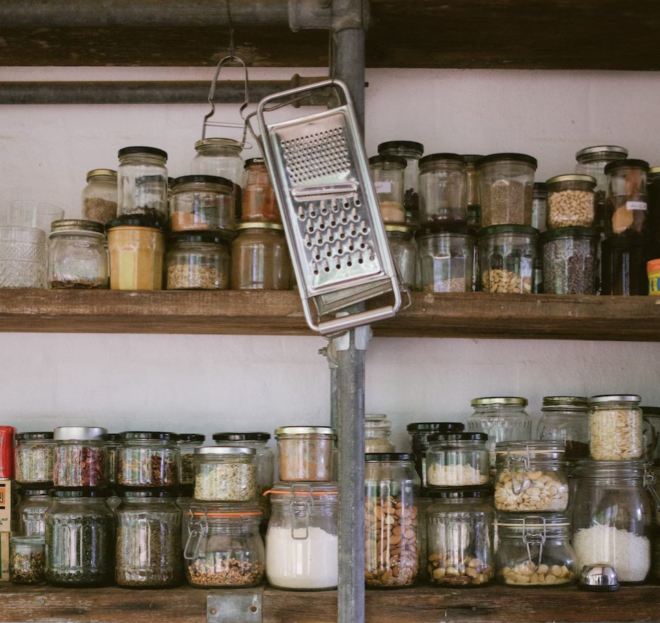
Minimalist shoes help build muscles in your feet so actions like grocery shopping can also be good for your back and body.
Eco-friendly grocery shopping has become more and more popular in recent years as people have become more conscientious of their impact on the environment. Whether you’re a college student looking to reduce your carbon footprint or a medical professional at The Bunion Cure looking to invest in groceries that are healthier for you and the planet, incorporating eco-friendly habits into your grocery shopping routine has many benefits. There are many different ways to shop eco-friendly, and most likely there is a way that will fit into your lifestyle with minimal effort. Here are a few eco-friendly grocery shopping habits to try in 2023!
Bring your own reusable bags to the store – this will reduce the amount of plastic waste produced
Shopping with reusable bags is an easy way to have a positive effect on the environment. By bringing your own bags to the store, you can drastically reduce plastic waste, helping to protect our planet for future generations. Not only does this practice eliminate plastic waste during production, but it also reduces littering and improves the overall health of oceans, lakes, and rivers. Additionally, it encourages other shoppers to do the same which contributes further to decreasing our society’s reliance on plastic products. Overall, switching out plastic bags or single-use packaging for reusables is a small but powerful choice you can make every day that will benefit our environment in big ways!
Shop at farmers’ markets or local grocers for fresh, seasonal produce

A village market in Thailand. Buying fish with a special low-cost device to keep the flies away.
Shopping at farmers’ markets and local grocers is a great way to get the freshest and most seasonal produce available. Not only are you getting food that has been harvested recently, but you’re also buying directly from those who grew it or brought it to market. Buying locally-sourced produce not only supports the local economy, but it can also help reduce the CO2 emissions caused by long-distance transportation of goods. Additionally, local farmers often have access to smaller varieties of fruits and vegetables that may not be found in larger grocery stores—and these often have more flavor and nutrition than mass-produced items. Shopping for your produce at a farmers market or local grocer ensures that your food will taste fresh, be good for your health, and contribute to environmental sustainability.
Buy in bulk when possible to save money and packaging

Buy local and without plastic bags. Refill dried goods at co-ops or bulk shops.
Buying in bulk is a great way to save money because you get a bigger quantity at a reduced price when compared to buying single items. Moreover, it helps reduce the amount of packaging used to contain products – reducing your carbon footprint in the process! Not only can you save money by buying in bulk, but you get more products for the same price and help support environmental protection. Consider stocking up on pantry staples like grains, beans, and pasta as well as household supplies like laundry detergent and paper towels. Although it may be tempting to buy larger quantities of less essential home goods or items that you might not use much, be careful with these impulse purchases. Bulk buying won’t always guarantee savings; check the unit price before deciding if purchasing an item really makes financial sense for you.
Avoid pre-packaged foods whenever possible, opting for loose items instead
Pre-packaged foods are usually more expensive than their loose counterparts, consequently adding unnecessary strain to grocery stores’ budgets. Furthermore, the chemicals and preservatives often used to keep pre-packaged foods fresh can negatively affect one’s health if consumed for long periods of time. When shopping for groceries, try to select foods such as fruit, vegetables, and grains which are available in the bulk food store section — those without additional packaging. Loose items provide delicious and nutritious meals in an economical manner, making it easier on both our wallets and waistlines!
Read labels carefully to make sure you’re buying eco-friendly products
The modern consumer has the responsibility of being a conscientious shopper who is aware of the environment when making purchase decisions. Before committing to buying an item, looking at labels can help you determine if a product is truly eco-friendly. Look for fair trade, slow food, and organic labels. Often times this will include reading about their production processes, what materials are used in their manufacturing, and checking for any certifications from organizations that prove a certain standard has been met. Doing so does add more time to your shopping routine, but it’s worth taking the initiative to make sure that our planet remains healthy for years to come.
Educate yourself on food waste and how to avoid it in your own shopping habits
It is becoming increasingly important to educate ourselves on how to avoid food waste in our own shopping habits. Although it may seem like a small issue, food waste has a significant environmental impact and can be easily avoided. It’s important to remember that we often tend to purchase more food than necessary while grocery shopping and should make sure to plan out meals ahead of time in order to buy only the items we will use. Another tip is to freeze groceries if you know you won’t be able to use them soon, this way nothing goes bad! Grocery stores themselves also have an obligation in managing their own food waste so it is important for us as consumers to do whatever we can when it comes to personal responsibility. All of these efforts play an important role in reducing the problem of food waste as a whole.
You can make a difference in the amount of waste produced by following these simple tips next time you go grocery shopping. Every little bit helps when it comes to saving our planet! What other ways do you try to be eco-friendly?
